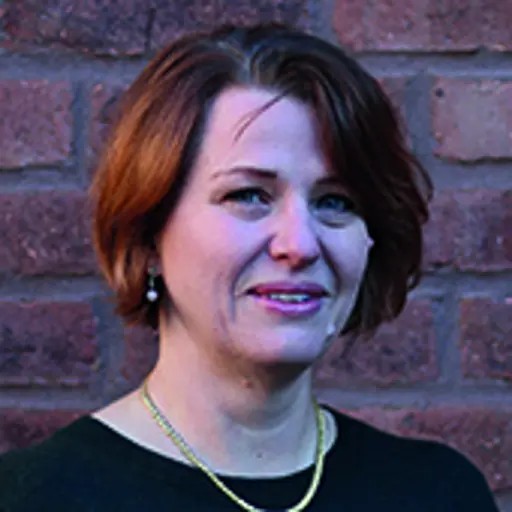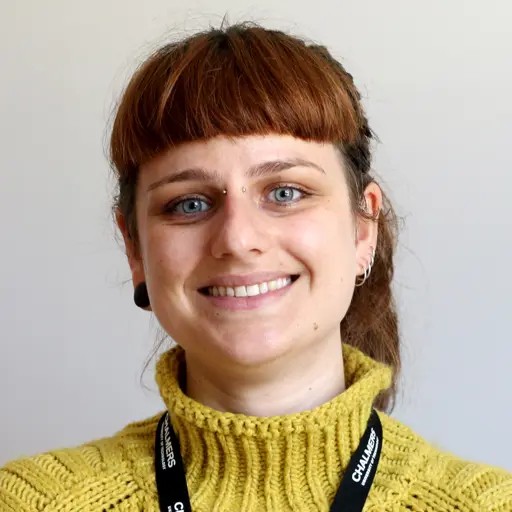











Our research is aimed at contributing to the developing bioeconomy by discovering, characterizing, improving and applying microorganisms and enzymes in bioprocesses. We work with a broad range of tools including bioprospecting, systems biology, enzyme discovery, enzyme characterization, cell factory design, fermentation physiology, biosensors, modelling, and chemical and structural characterization of lignocellulosics. These different tools are applied to gain detailed understanding of the enzymes and microorganisms we work with and to study how they interact with natural and industrial substrates and environments.

Through our work on microbial enzymes and bioprocesses, we contribute to the United Nations Sustainable Development Goals by advancing sustainability, clean energy, public health, and environmental protection. Our diverse team of researchers is dedicated to advancing the transition to a fossil-free society, applying our expertise not only in research but also in education and for the benefit of society.
Our research focus
Microbial robustness & cell factory design
Primarily, yeasts are studied and metabolically engineered for the production of a range of products, including bioethanol, adipic acid, fatty acids, and functional food ingredients. Microbial robustness has been conceptualized, and tools for investigating and describing robustness with regards to quantification and intracellular monitoring (using biosensors). Fermentation physiology is an integrated part of the studies. The tools have been applied to subpopulation studies, evolutionary engineering, and to gain insight into contamination issues in large-scale bioethanol processes.

Membrane engineering
We study the function of the yeast cell membrane with regard to the transport of undissociated weak acids. The overall research question is how/if cellular tolerance towards weak acids can be modulated by membrane engineering. We use a combination of metabolic engineering targeting the cell membrane lipids composition, lipidomic, membrane modeling, and studies of the supramolecular properties of the cell membrane in our studies.

Microbial electrosynthesis of alcohols
We study the use of microbial electrosynthesis for the development of an entirely renewable energy system by developing a new concept for bioelectrochemical synthesis of alcohols from CO2 using renewable electricity. The research focuses on developing and characterizing stable electrode-bound biofilms for electrosynthesis and optimizing the production of alcohols.

Probiotic microorganisms
Probiotic microorganisms are a vital component of our diet and have a role in supporting the health of the digestive system. In the project, we work with the probiotic yeast Saccharomyces cerevisiae var. boulardii. We are studying its ability to grow in conditions resembling the colon. The human digestive system is a challenging environment for yeast, so their survival depends on the method of yeast biomass production and the quality of the resulting cells. We are developing tools to monitor the production of yeast biomass and to evaluate the robustness of probiotic strains.

Biorefinery Processes
We develop bioprocesses using enzymes and microorganisms to convert lignocellulosic biomass to fuels, chemicals, materials, food ingredients and pharmaceuticals. With our engagement in the Wallenberg Wood Science Center, we also contribute to the materials biorefinery. Furthermore, we develop fermentation processes for both sugar platform biorefineries and thermochemical biorefineries (for carbon dioxide valorization).

Biodiversity Screening
In a collaboration with researchers based at the Food Industries Research Institute, Hanoi, Vietnam, we explore biodiversity in natural and industrial environments to find novel acidophilic and thermophilic fungi. By employing phylogenic and multi-omics approaches, we investigate the natural functions of these highly tolerant filamentous fungi and their enzyme machinery.

Enzyme Discovery & Functional Characterization
Enzymes find numerous industrial applications in biomass utilization and valorization. We study a diverse range of enzyme families in order to find greener ways to convert lignocellulose into usable chemicals. One key focus is the enzymatic saccharification of mildly steam pretreated spruce and how targeted enzyme cocktails can improve saccharification efficiency. Other enzymes that we focus on are cutinases, which show potential to valorize suberin in bark by releasing valuable fatty acids; and LPMOs, which find use for their potent oxidative properties.

Biomass Characterization
To develop bioprocesses using complex, industrially relevant biomass, advanced analytics and studies on the effects of enzyme action are instrumental. Investigations on the structural effects of enzyme treatment are crucial for understanding enzyme function. Together, they can drive the development of tailor-made cocktails for more efficient lignocellulose valorization.

Publications
Group members
Research group leader
Postdoc

- Postdoc, Industrial Biotechnology, Life Sciences

- Postdoc, Industrial Biotechnology, Life Sciences

- Doctor, Industrial Biotechnology, Life Sciences

- Postdoc, Industrial Biotechnology, Life Sciences

- Postdoc, Industrial Biotechnology, Life Sciences
PhD student
Visting researcher
Alumni from Chalmers (not complete)
Ali Kazemi Seresht (PhD student, graduated 2012)
Anna Johansson (Industrial PhD student, graduated 2020)
Ausra Peciulyte (PhD student, graduated 2015, post doc)
Bettina Lorantfy (post doc)
Cecilia Trivellin (PhD student, graduated 2024)
Cecilia Gejier (post doc, researcher)
Charis Xiros (post doc)
Christian Marx (post doc)
Christian Thörn (PhD student, graduated 2014)
Cyrielle Bonzom (PhD student, graduated 2019)
David Moreno (visiting researcher, post doc)
Elia Tomas-Pejo (visiting PhD student, post doc)
Emma Skoog (PhD student, graduated 2019)
Eva Albers (post doc, researcher)
Evangelis Topakas (visiting researcher)
Efstratios Nikolaivits (postdoc)
Fabio Faria-Oliveira (post doc)
George Anasontzis (post doc)
Gupta Udatha (PhD student, graduated 2013)
Hampus Sunner (PhD student, graduated 2016)
Jenny Arnling Bååth (PhD student, graduated 2019)
Jeroen Martens (post doc)
Jae Ho Shin (PhD student, graduated 2021)
Katja Salomon Johansen (guest professor)
Lina Lindahl (PhD student, graduated 2017)
Luca Torello Pianale (PhD student, graduated 2024)
Magnus Ask (PhD student, graduated 2013)
Marlous van Dijk (PhD student, graduated 2021)
Maurizio Bettiga (Assistant professor, unrenumerated docent, visiting researcher)
Monika Tolgo (PhD student, graduated 2023)
Nikolaos Xafenius (post doc, researcher)
Paul Christakopoulos (visiting professor)
Pavel Piatek (post doc)
Peter Adeboye (PhD student, graduated 2016)
Peter Rugbjerg (post doc, visiting researcher)
Rakesh Koppram (PhD student)
Silvia Hüttner (post doc)
Sylvia Klaubauf (post doc)
Sun-Li Chong (post doc)
Valeria Mapelli (post doc, reseracher)
Vera Novy (postdoc )
Veronica Saez Jimenez (post doc, researcher)
Vijay Raghavendran (post doc)
Wissal Ben Ali (post doc)
Zhong-Peng Guo (post doc)
We thank all dedicated MSc students, BSc students and trainees that have contributed to the research in the group.
Group leader
- Centrumföreståndare, Life Sciences


